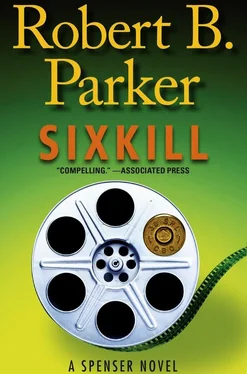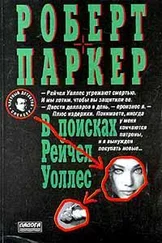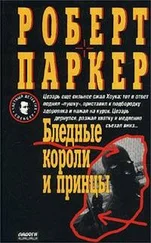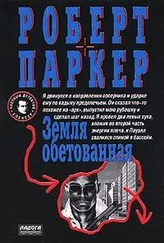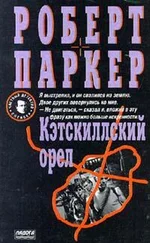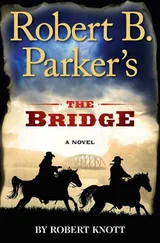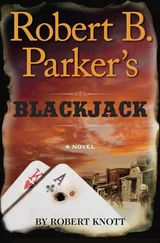“So if I could quit?” Z said. “For a while.”
“Worth trying,” I said.
“Maybe I’d know,” Z said.
“Maybe.”
“So what if I lay off for a month and go back and after my first drink I’m right back into the booze?”
“Then you’ll know more about yourself than you do now.”
“And I’d have to quit for good,” Z said.
“Maybe.”
“Be like a test run,” Z said.
“Uh-huh.”
“Like today,” Z said.
“Uh-huh.”
“No way to know if you don’t try it out,” Z said.
“Sort of like the scientific method,” I said.
“What’s that,” Z said.
“Form a hypothesis and test it,” I said.
“A hypothesis.”
“Yep.”
Z picked up his bourbon and drank the rest of it. I looked at the colorful pattern of the booze bottles stacked behind the bar. I listened to the soft human sound of the half-full bar. I thought about the evenings alone, perhaps with Pearl asleep on the couch, when I would have a couple of drinks before supper and think about me and Susan and all that had happened and all that we had done. No matter how many moments I had like that, they were all intensely moving for me.
“I don’t want to start today,” Z said.
“You’re not doing it for me,” I said.
“Meaning?”
“You don’t drink because I’m watching,” I said. “Doesn’t really count much.”
“So you’re saying I shouldn’t start not drinking while you’re watching.”
“Start when you’re alone,” I said. “And remember, it may be temporary.”
“A hypothesis,” he said.
“That you’re testing,” I said.
“Like today,” Z said again.
“Which worked out quite well,” I said.
“I’ll drink to that,” he said.
“Me too,” I said.
I signaled the bartender.
A young man who needed a haircut came into my office wearing a seersucker suit, a white shirt, a blue tie, and a woven straw snap-brim hat.
“Spenser,” he said.
“I am he,” I said.
“My name is Corky Corrigan,” he said. “From the law offices of Morris Hardy.”
He took a card from his shirt pocket and laid it on my desk.
“Wow,” I said. “I’ve seen Morris’s ads on television. He looks implacable.”
“Right,” Corrigan said. “We represent Thomas and Beatrice Lopata.”
“You and Morris,” I said.
“Yes,” Corky said.
“Have you ever met Morris Hardy?” I said.
“Certainly,” Corky said. “He spoke at one of our associate meetings.”
“You work for Morris?” I said.
“We are associated,” he said.
“And you do the case,” I said. “And Morris looks implacable and takes a third of the fee.”
Corky gave a little head shake, as if there was a bug on his nose.
“We are bringing a wrongful-death suit,” he said, “against Jeremy Franklin Nelson in the death of Dawn Ellen Lopata.”
“Good for you,” I said.
“I know you’ve been investigating the case,” he said. “And as we assemble our witness list, I thought it might be wise to see what you’ve learned.”
“I’ve learned that I don’t know what happened,” I said.
“But you must have a slant on things,” Corky said.
He had a little notebook resting on his thigh, and had his Bic pen poised to transcribe things.
“My slant is pretty much a combination of subjective impressions and hearsay,” I said.
Corky nodded.
“Useful background,” he said.
“It is,” I said.
“So go ahead,” Corky said with a smile. “Don’t worry about hearsay, leave the legal stuff to me, just relax and tell me what you’ve found and what you suspect.”
“Where’d you go to law school, Corky?” I said.
“Bradford School of Law,” he said.
“In Haverhill,” I said.
He nodded.
“And you graduated?”
“Three years ago.”
“And passed the bar?”
“Last year,” he said.
I nodded.
“Mum’s the word,” I said.
“Excuse me?” Corky said.
“I don’t want to tell you what I’ve found and what I suspect,” I said.
Corky seemed startled.
“Why not?” he said.
“Don’t see anything in there for me,” I said.
“Don’t you care about justice?”
“I do,” I said. “Also truth, and the American way. But I am not so sure about civil litigation.”
“Are you asking to be paid?” Corky said.
“No.”
“Then I don’t understand,” Corky said.
“I’m sure you don’t,” I said. “I am still working on the case, and I don’t want you, or even the implacable Morris, stepping on leads and tripping over suspects while I’m trying to work.”
“Who is your client?” Corky asked.
“Nope,” I said.
“Well, who do you recommend I talk with?” he said.
“Captain Martin Quirk,” I said. “Boston Police Department. He’s in charge of the case.”
Corky wrote it down.
“Do you think he’ll cooperate?” Corky said.
“Serve and protect,” I said. “But it would be good not to annoy him.”
“Do I annoy you?” Corky said.
“Let me count the ways,” I said.
I was drinking beer from the bottle, and Susan had a plastic glass of pinot grigio. We were sitting on the deck of the Institute of Contemporary Art in South Boston. Generally I found the art at the Institute somewhat too contemporary for me. I was more a Hudson River School guy. But the view of the Boston waterfront along the curve of the harbor was peerless. And in nice weather, we both liked to sit there and look at it.
“Wouldn’t it be wiser for the Lopatas to wait?” Susan said. “I should think it would make their case stronger if he were convicted in criminal court.”
“One would think,” I said.
A big glassy excursion boat full of people drunk in the mid-afternoon cruised past us, heading for a tour of the harbor and islands.
“And maybe they wouldn’t need to sue,” Susan said.
“If they were after revenge,” I said.
Susan sipped a small amount of white wine.
“Yes,” Susan said. “If the criminal trial seemed to be a miscarriage of justice, then you could bring civil suit, try for some justice.”
“Seems so,” I said.
“But if you wanted money...” Susan said.
“Then maybe you’d get right to it,” I said. “Greed being what it is.”
“It seems to argue that justice is not the motivation,” Susan said.
“Does,” I said. “Of course, human motivation is generally more than one thing.”
“How do you know that?”
“Close observation of the human condition,” I said.
“Uh-huh?”
“And you told me,” I said.
“Uh-huh.”
Some gulls sat alertly on the pilings, watching people eat. Occasionally, for no apparent reason, one would suddenly unfold his wings and sweep into the air. Then he would fly off, and return. Of course, since gulls look very much alike, I couldn’t say for sure if it was the same gull.
“Do you think they can win?” Susan said.
“Not with Corky Corrigan running their suit,” I said.
“Not even if Morris Hardy steps in?” Susan said.
“Morris Hardy will step in to take his third of the fee, if Corky manages to win,” I said.
“Maybe Jumbo’s people will settle.”
“Probably,” I said. “Which is what probably attracted Morris Hardy and his law offices in the first place.”
“Because,” Susan said, “he knows that Jumbo’s people want all this to go away before the world finds out what Jumbo really is.”
“Not calculus,” I said.
“Can you do calculus?” Susan said.
Читать дальше
